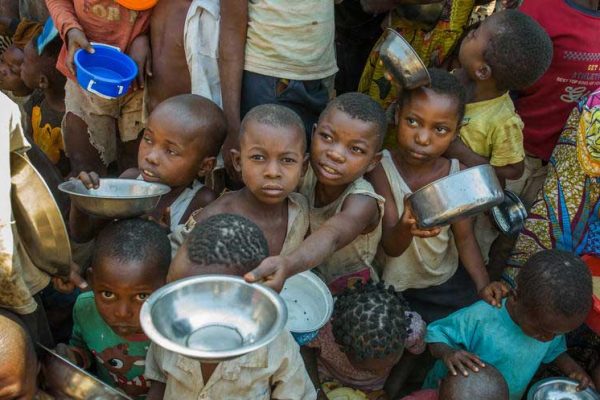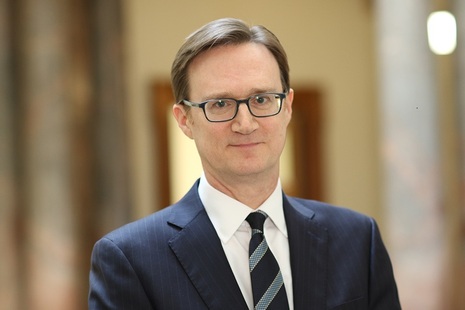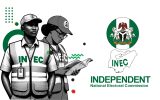“In February 2022, the consumer price index, (CPI) which measures inflation increased to 15.70 per cent on year-on-year basis. This is 1.63 per cent points lower compared to the rate recorded in February 2021 (17.33) per cent. This means that the headline inflation rate slowed down in February when compared to the same month in the previous year,” the National Bureau of Statistics (NBS) said.
Youth unemployment stands at 42.5 per cent, while underemployment stands at 33.3 per cent. This is away from the figures that are presented on the country’s poverty level.
The President, Nigerian Association of Economists (NAE), Prof. Innocent Eleazu has said that over 90 million Nigerians are living in extreme poverty as a result of the bad economy caused by incompetence, greed, corruption, wickedness and mismanagement of the country’s economy by the ruling class, warning that if the situation is not adequately addressed, there may be famine by 2025 in Nigeria.
”In Nigeria, about 86.9 million people live in severe poverty which is about 50 per cent of the entire population. The Nigeria poverty rate for 2018 was 92.00%, a 0.9 decline from 2009. Imagine what Nigeria unemployment rate is today. The Consumer Price Index in Nigeria is expected to be 409.75 points by the end of the quarter, according to Trading Economic Globe Macnomodels”.
Prof. Innocent Eleazu
Like the individual with a mental problem, walking the streets, smiling and having self conversations, poor Nigerians are suffering and smiling away the rising problem of poverty.
From independence till date, the hope of a small fire in the snow has gone off every time someone sights it. The narration is that the person who lights the fire (Nigeria’s leaders) puts it out before anyone runs to it for some heat.
The United Nations defines poverty as; A denial of choices and opportunities, a violation of human dignity. It means a lack of basic capacity to participate effectively in society. It means not having enough to feed or clothe a family, not having a school or clinic to go to, not having the land on which to grow one’s food or a job to earn one’s living, not having access to credit. It means insecurity, powerlessness, and exclusion of individuals, households and communities. It means susceptibility to violence, and it often implies living in marginal or fragile environments, without access to clean water or sanitation (United Nations, 2011).
These are what President Muhammadu Buhari may have understood before his administration launched social intervention programmes to ‘ease the pain’ of Nigerians. But, where are the monies, what intervention has really happened?
In 2021, Nigeria’s Federal Government budgeted the sum of ₦863 billion for its various intervention programmes for the fiscal year ended December 2022, representing 5.3 per cent of ₦16.39 trillion budgeted for the year.
The special intervention programmes cover national poverty reduction plans including the upscaling of National Social Investments Programmes (NSIP); and special interventions.
The FG intended to spend ₦410 billion on its national poverty reduction including upscaling of NSIP. An additional ₦300 billion was budgeted for the FGN share of the National Poverty Reduction with Growth Plan.
NSIP was set up in 2016, to tackle poverty and hunger across the country. The projects covered under the NSIP include:
- N-Power Programme,
- The Conditional Cash Transfer (CCT) programme,
- Government Enterprise and Empowerment Programme (GEEP), a micro-lending intervention that targets traders, artisans, enterprising youth, farmers and women in particular, by providing loans between ₦10,000 and ₦100,000 at no monthly cost to beneficiaries and
- The Home Grown School Feeding (HGSF) programme.
But, there are no significant changes.
In a report published by Vanguard in 2020, the Social Investment Programmes was reported to have gulped over ₦500 billion in the four years since launch and has had no significant effectiveness in the fight against poverty. And, the ₦863 billion earmarked for same seems to have disappeared into thin air.
Bottomline
President Buhari sold the idea, before assuming office, that poverty eradication is one of his major intentions. “We will lift 100 million Nigerians out of poverty” is a sentence we have heard more times than we remember.
In his 2021 Independence Day speech, the president renewed his pledge to lift 100 million Nigerians out of poverty. But, a review of Nigeria’s projected poverty data shows that by 2030 over 105 million out of 257 million Nigerians will be living below the poverty line.
With that data in view, we could ask when we are going to get to the promised state, but we are not sure we even know where we are going. All we know is that India has overtaken Nigeria as the poverty capital of the world.














